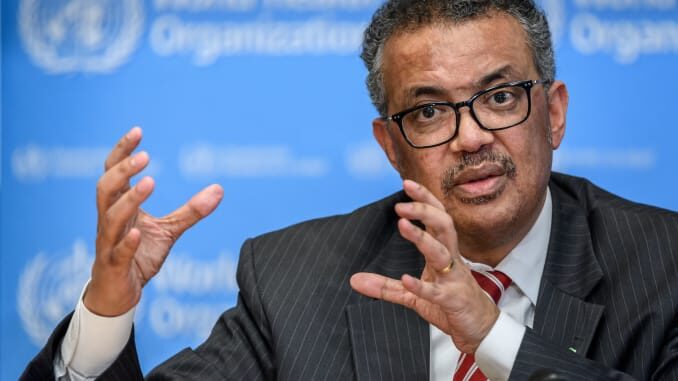
The World Health Organisation has named the latest COVID-19 variant identified in South Africa, the Greek name ‘Omicron’, and labelled it a variant of concern due to its large number of mutations and possible faster rate of infection.
WHO, in a statement on Friday, said that preliminary evidence also suggests an increased risk of reinfection with this variant of concern, as compared to other strains, such as Delta.
Currently, the number of cases appears to be increasing in almost all provinces in South Africa, according to the UN health agency.
WHO explains that the variant has been detected at faster rates than in previous surges in infection, suggesting it “may have a growth advantage”.
WHO experts have asked countries to enhance surveillance and genome sequencing efforts to better understand the variant.
There are also a number of studies underway and the agency’s technical advisory group, known by the acronym TAG-VE, will continue to evaluate this variant.
WHO will communicate new findings to Member States and to the public as needed.
WHO’s COVID-19 technical lead, Dr. Maria Van Kerkhove, said the information about the new ‘Omicron’ variant is still limited.
“There are fewer than 100 whole genome sequences that are available, we don’t know very much about this yet.
“What we do know is that this variant has a large number of mutations, and the concern is that when you have so many mutations it can have an impact on how the virus behaves,” she said.
Kerkhove explained that researchers are currently trying to determine where the mutations are and what they potentially mean for diagnostics, therapeutics, and vaccines.
“It will take a few weeks for us to understand what impact this variant has, there’s a lot of work that is underway,” she added.
In addition, the UN health agency urged all countries to adopt a risk-based and scientific approach to travel bans linked to the new variant identified in South Africa and Botswana.
Kerkhove thanked researchers from these countries for openly sharing information to the UN health agency.
“Everyone out there: do not discriminate against countries that share their findings openly,” she urged, as countries such as Britain, France and Israel have moved to cancel direct flights from South Africa and surrounding nations.
The WHO officials restated previous advice: that people can do a lot to protect themselves from COVID, including by continuing to wear masks and avoiding crowds.
“Everybody that’s out there needs to understand that the more this virus circulates the more opportunities the virus has to change, the more mutations we will see,” said Kerkhove.
“Get vaccinated when you can, make sure you receive the full course of your doses and make sure you take steps to reduce your exposure and prevent yourself from passing that virus to someone else,” she added.
According to South African health authorities, so far, fewer than 100 cases of the new variant have been confirmed, largely among young people who have the lowest vaccination rate in the country.
“Countries can do a lot already in terms of surveillance and sequencing and work together with the affected countries or globally.
Countries can work together with affected countries or globally and scientifically to fight this variant and understand more about it so that we know how to go about it.
“So, at this point, implementing travel measures is being cautioned against,” WHO spokesperson Christian Lindmeier told journalists in Geneva.
(NAN)
END

Be the first to comment